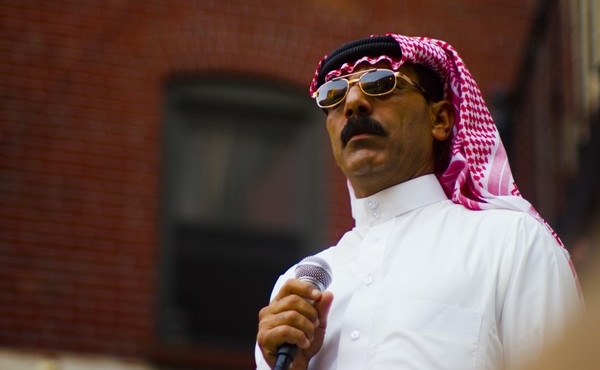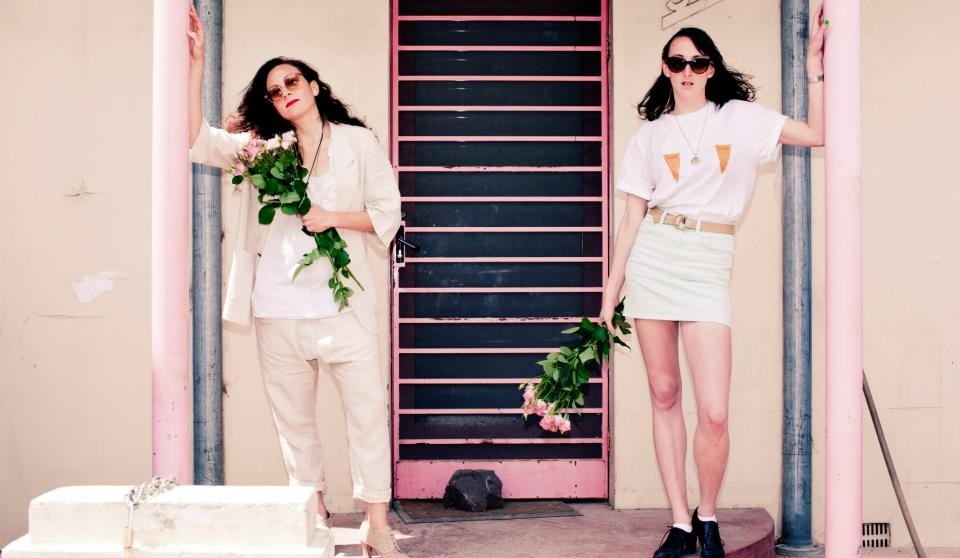The one-time mason who hails from Ra’s al’-Ayn, a Syrian town in the north-eastern region of Jazeera, has since 1996 been ‘repurposing’ his native land’s traditional dabke music, a widely popular style of folk dance music played at social gatherings in many parts of the Arab world. In recent years this form of folk music, which sees men and women dance together in a large circle, has enjoyed a real resurgence in popularity. Dabke is built around intricate instrumental leads, sermonising vocals, along with pounding trance-inducing rhythms, sharing structural similarities with Western electronic dance music. As a child in his hometown, Souleyman first heard Syrian folk music played on a long-necked lute called a bozouki and a rebab, a single-stringed fiddle, both traditional instruments used throughout Mediterranean and Middle Eastern lands. Over the last 20 years, however, Dabke musicians like himself have been incorporating synthesizers and four-on-the-floor drum machines into their compositions.
In 2013, after 20 years of performing, Souleyman released his first studio album, Wenu Wenu (from UK label Ribbon Music) although he has recorded five LPs of material released through the American ethnographic music label Sublime Frequencies, accompanied on these by his long time musical colleagues Ali Shaker (electric saz) and Rizan Sa’id on synthesizer. According to Souleyman, the recording of Wenu Wenu is ‘nearly live.’ It includes a very old Kurdish song, Warni Warni, featuring electronic percussion on top of a techno-folk beat. A second CD is on its way.
Despite the presence of technical sounds in his music, Souleyman insists he’s a traditional musician making traditional Syrian music. His career owes much of its beginnings to bootleg recordings and You Tube videos made at Syrian weddings which quickly found their way around the Middle East. Bjork used his music in her Crystalline Series.
Where does Souleyman reckon his music sits in the arena of modern Syrian music? “I do not know if you mean contemporary music, music today? I am not sure about ‘modern’ music. My music is very traditional and this way of music has existed for a long time in my region but it changes too with the time.” Souleyman maintains he never set out to achieve fame in the West; it just happened. He refutes any suggestion of playing to Western tastes. “I have never changed or tried to adopt my music to anyone’s taste. I stay true to my tradition always. The West has discovered my music gradually.”
Does he see himself as a kind of ambassador for Syrian folk music? “I do not see or try to do anything like this purposely,” he answers. “It is possible and maybe true that since I take my music to many different and faraway places in the world, I become something like this – inadvertently – but I did not set out to do that or in any way claim to represent.”
Souleyman has since left weddings behind and prefers to perform live concerts. Who are his strongest musical influences? “There are many singers from my region who you would not ever have heard about but I also love the music of Fairuz and Umm Khaltoum.”
Is he ever criticised by purists for his treatment of Syrian folk tunes? If so, how does he respond? “I do not care of that in the least and I do not know or pay attention to anything like this,” he answers. “I do not even know who you mean by ‘purists’.” Are there any artists he would like to work with in the future? “No there are no particular artists.”
Souleyman sings in Kurdish as well as in Arabic. Given the current political and social upheavals in his country, Beat wonders if Souleyman perhaps attracts a similar following with fans as did the Rai musicians of Algeria a few decades ago, Cheb Khaled for example. We ask him if his music has been taken up by any particular segment of Syrian society as a voice of protest. Would he compare himself to Algerian Rai musicians of the 1980s? Does any of his music have that aspect of anti-establishmentarianism that came to define Rai? Souleyman is unaware of and keen to dismiss any possible political associations with his art form. His simple answer to those questions is unequivocal: “My music is for everyone who wants to listen to it, in Syria or anywhere else in the world. Honestly, I do not have any idea who that musician you speak of is. For certain my music has nothing to do with any such concept at all. My music is traditional music from my region and speaks of love and simple things in life.”
BY LIZA DEZFOULI

